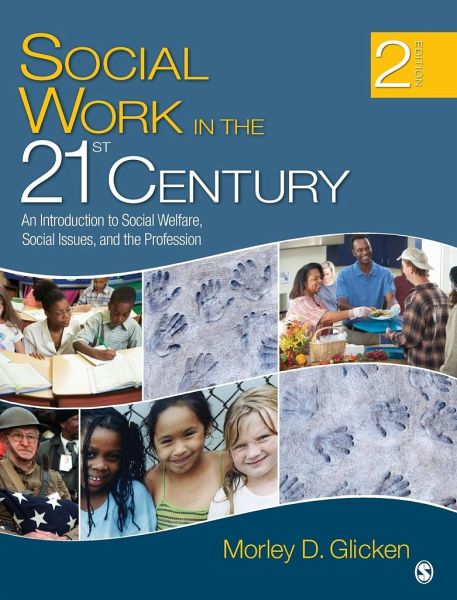
Social Work in the 21st Century
An Introduction to Social Welfare, Social Issues, and the Profession
Versandkostenfrei!
Versandfertig in 1-2 Wochen
213,99 €
inkl. MwSt.

PAYBACK Punkte
107 °P sammeln!
A student-friendly introduction to the field of social work, social welfare, and the profession of social work, social issues, and social welfare Designed to get students excited about the profession and thinking critically about what social workers do and how they operate within the larger system, this Second Edition explores social issues in the United States, looks at how the social welfare system attempts to resolve these issues, and considers the many roles assumed by professional social workers within the social welfare system. This edition offers new and revised coverage throughout and ...
A student-friendly introduction to the field of social work, social welfare, and the profession of social work, social issues, and social welfare Designed to get students excited about the profession and thinking critically about what social workers do and how they operate within the larger system, this Second Edition explores social issues in the United States, looks at how the social welfare system attempts to resolve these issues, and considers the many roles assumed by professional social workers within the social welfare system. This edition offers new and revised coverage throughout and reflects recent current events, including the historic 2008 presidential election, catastrophes such as Hurricane Katrina and the Haiti earthquake, and government responses.














